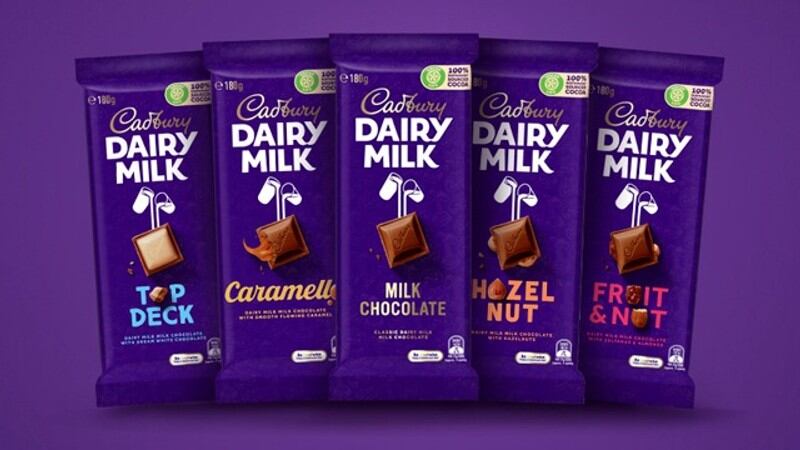Mondelez recently announced that Cadbury Dairy Milk blocks in Australia would be transitioning to using recycled packaging made from used soft plastic, a world-first for the brand.
“The recycled packaging will be used across the Cadbury Dairy Milk family blocks range, with the recycled content equivalent to over 30% of the total packaging material for these products,” Mondelez President Australia, New Zealand and Japan Darren O’Brien told FoodNavigator-Asia.
“Cadbury Dairy Milk family blocks [come in] over 20 different flavours on supermarket shelves across Australia.
“Not only is this a world first for Cadbury, but Cadbury in Australia will be amongst the first anywhere in the world to buy recycled content soft plastic packaging.”
The technology employed to do this will enable the recycled packaging to have ‘exactly the same’ characteristics as regular plastic packaging.
“The beauty of advanced recycling technology is that it returns the soft plastic packaging back to its original building blocks, making it possible for soft plastic to become a truly circular material,” said O’Brien.
“It will perform in the same way and have the same characteristics as virgin soft plastic packaging.”
Importantly, when asked about the potential of this recycled packaging in other APAC markets, particularly markets where humidity has long been a hurdle in developing more sustainable packaging such as Malaysia and Indonesia, he added that this solution was a viable one to be used even in these conditions.
“Because the recycled soft plastic performs just like virgin material, it can be used in exactly the same way as it is today,” he said.
“Consumers can expect to see this technology grow rapidly over the coming years, delivering more recycled packaging options in the APAC region and beyond. [We also] expect that more of these innovative materials and recycling technologies will come online over the next few years.”
Mondelez Australia also previously trialled a ‘world-first’ plastic-free packaging on chocolates produced for overseas delivery, which used a ‘fully-sealed paper material’ with no laminates foils or plastics.
O’Brien did not confirm whether that trial was a success, but told us that ‘work is continuing’ on the firm’s search for more sustainable packaging options in collaboration with partners in order to meet the sustainability demands and expectations of ‘consumers, customers and policymakers’.
Other similar efforts
Earlier this year, Nestle Australia also revealed to us that they had embarked on a ‘wildly ambitious’ trial to create a prototype recycled plastic wrapper for KitKat.
The wrapper made a lot of headlines as ‘Australia's first soft plastic food wrapper made with recycled content’ but the firm clarified that this was just a prototype, aiming to ‘demonstrate what is technically possible’.
“Of course we’d love to bring this to market, but currently gaps still exists between this prototype we’ve created and commercialising the wrapper in any significant scale that require every single part of the recycling system in Australia to think and do things differently,” Nestle Oceania Head of Corporate Affairs Margaret Stuart told us then.
“One very clear example is when it comes to curbside collection of soft plastics such as those used to make this wrapper – current collection is still mostly dependent on supermarket collection programmes which makes scaling up difficult at this point.”
Mondelez is taking this ambitious endeavour into commercialisation, as it expects to collect and produce enough recycled plastic for 50 million family blocks of Cadbury Dairy Milk, although the tech being used is currently not sourced locally and at this stage the recycled plastic material sourced is still at about 30% of the required plastics needed to wrap these products.
“While we’ve accessed the very latest technology from overseas to source this recycled material, we know that demand for circular packaging will continue growing and we’d love to see recycling technology built in Australia to meet local demand,” said O’Brien.
Mondelez will launch the first Cadbury Dairy Milk blocks using recycled soft plastic in their packaging in Australian supermarkets from September 2022.



